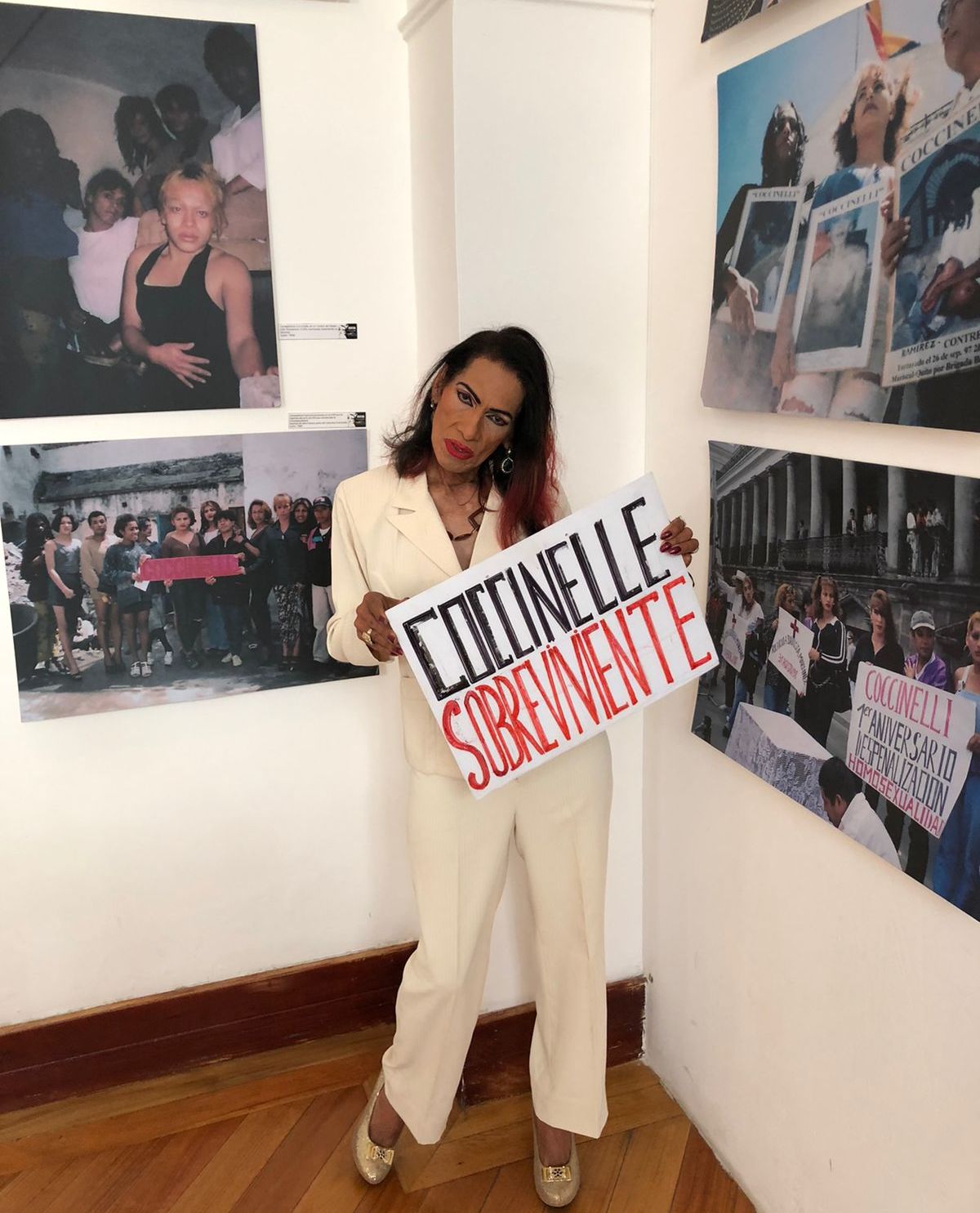Purita Valentina Pelayo, also known by the pseudonym Alberto Cabral (Esmeraldas, March 24, 1957) is an Ecuadorian transgender activist and author. She was one of the founders and the president of the Coccinelle Association, the first organization of transgender people in the history of Ecuador, which played a leading role in the campaign for the decriminalization of homosexuality in the country, which achieved its goal in November 1997. She is also the author of the award-winning non-fiction work “Los fantasmas se cabrearón” (2017), which recounts police abuse and the birth of LGBT activism in Ecuador at the end of the 20th century.
Background
Purita Pelayo was born on March 24, 1957 in the coastal city of Esmeraldas. He completed his secondary studies at the “5 de Agosto” School and as a young man he actively participated in community service activities with the Comboni missionaries. In the 1980s he moved to Quito with the intention of studying law. Failing the entrance exam to the school of jurisprudence, he decided to study philosophy and political science at the Pontifical Catholic University of Ecuador, but dropped out after two and a half years. During this time, she began to assume her identity as a transgender woman and to get closer to other trans women who hung out at night in the La Mariscal neighborhood. Many of them would eventually become members of Coccinelle.
Activism in Coccinelle
Due to police abuses and constant arrests of trans women at the time when he became an activist, Pelayo chose the pseudonym Alberto Cabral to conceal his true identity, fearing retaliation. Alexis Ponce, founder of Ecuador’s Permanent Assembly of Human Rights (APDH), suggested the pseudonym to Pelayo by combining the names of singers Alberto Cortez and Facundo Cabral, who were performing concerts in the country at the time. Pelayo also used the pseudonym Maciel.
Initially, Pelayo’s activism focused on visiting the Provisional Detention Center to help trans women detained by the police. Subsequently, she began to organize with other trans women to denounce the abuses against them, motivated by the situation that the country was experiencing in the 1990s, when various social groups of indigenous people, workers, and students articulated in defense of their rights. The group grew and they decided to name it the Association of Gays, Transvestites and Transgender Coccinelle, in honor of the French transgender activist and vedette of the same name. The association elected Pelayo as its president and was legally recognized in 1997, making it the first transgender organization in Ecuador’s history.
In response to the Abanicos bar raid, a violent police raid that occurred in June 1997 in a gay nightclub in Cuenca, different LGBT groups began to articulate in a front to demand the decriminalization of homosexuality. Coccinelle took center stage in this campaign and its members began to gather every Wednesday in the Plaza de la Independencia to demand their rights. On September 24, 1997, Pelayo and the representatives of the other LGBT organizations participating in the campaign filed a lawsuit before the Constitutional Court to decriminalize homosexuality. The Court issued its opinion on November 25 of the same year and declared the first paragraph of article 516 of the Penal Code unconstitutional, with which homosexuality was decriminalized.
Coccinelle was dissolved in 2000 due to disagreements among its leaders over the use of the organization’s funds, and it was replaced by FEMIS (Ecuadorian Foundation for Sexual Minorities), which retained Pelayo as president but then vanished in 2006.
Recent years
On the occasion of the commemoration of the 20th anniversary of the decriminalization of homosexuality in Ecuador, and inspired by the book of chronicles “The Men with the Pink Triangle” by Heinz Heger, Pelayo had the idea of writing a book that would recount police abuses at the time and the facts surrounding the campaign for decriminalization. The work was published under the name “Los fantasmas se cabrearón” in November 2017 by the Regional Human Rights Advisory Foundation (INREDH) and was signed by the author under the pseudonym Alberto Cabral. In addition to the police abuses, the work recounts the process of creating the Coccinelle Association and its role in the process of decriminalizing homosexuality in the country.
The publication of “Los fantasmas se cabrearon” allowed Pelayo to reconnect with many of the former members of Coccinelle, which led her to contemplate the idea of filing a lawsuit against the State for the police abuses committed against them and the LGBT population in general during the decades of the 1980s and 1990s. In 2019, Pelayo and the other survivors of Coccinelle joined to form the Nueva Coccinnelle group, from which they filed a lawsuit against the Ecuadorian State for crimes against humanity on May 17 of the same year, within the framework of of the International Day against Homophobia and Transphobia. However, until March 2022 the complaint had not progressed.
On June 24, 2021, she was awarded the Patricio Brabomalo Award, granted by the municipality of Quito from Mayor Jorge Yunda, for her work in favor of the rights of LGBT populations.
In March 2022, she reported having been the victim of a transphobic attack, after the owner of a bakery located in the center of Quito attacked her with a stick.
Videos
Purita Pelayo: how we achieved the decriminalization of homosexuality
“Dynamics of one more reality” by Purita Pelayo
Purita Pelayo interview
Works
- Los fantasmas se cabrearón (2017), awarded the José Peralta Prize by the Municipality of Quito.

